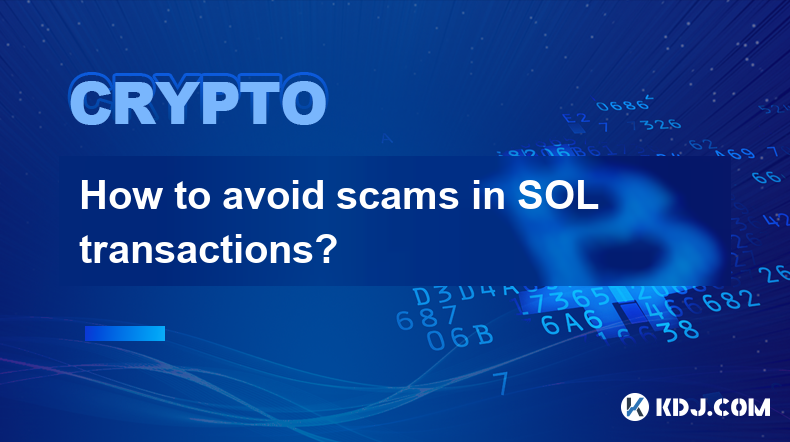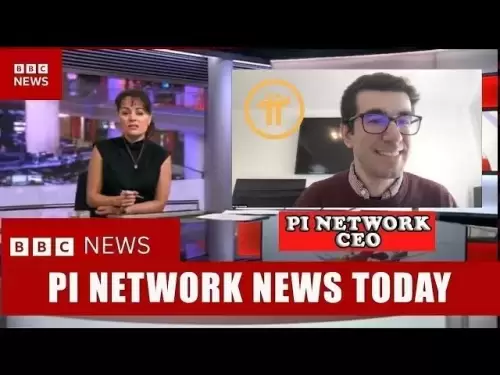-
 Bitcoin
Bitcoin $107,810.8710
-1.45% -
 Ethereum
Ethereum $2,531.4386
-1.75% -
 Tether USDt
Tether USDt $1.0000
-0.03% -
 XRP
XRP $2.2542
-0.99% -
 BNB
BNB $659.1350
-0.50% -
 Solana
Solana $148.5456
-2.40% -
 USDC
USDC $0.9999
-0.02% -
 TRON
TRON $0.2868
-0.44% -
 Dogecoin
Dogecoin $0.1666
-3.65% -
 Cardano
Cardano $0.5751
-2.36% -
 Hyperliquid
Hyperliquid $37.6845
-5.51% -
 Bitcoin Cash
Bitcoin Cash $494.9448
-0.65% -
 Sui
Sui $2.8396
-3.31% -
 Chainlink
Chainlink $13.2423
-2.59% -
 UNUS SED LEO
UNUS SED LEO $9.0482
0.02% -
 Stellar
Stellar $0.2467
-2.44% -
 Avalanche
Avalanche $17.8165
-3.63% -
 Shiba Inu
Shiba Inu $0.0...01158
-2.41% -
 Toncoin
Toncoin $2.7397
-3.42% -
 Hedera
Hedera $0.1560
-2.73% -
 Litecoin
Litecoin $85.8559
-2.34% -
 Monero
Monero $315.3710
-2.30% -
 Dai
Dai $1.0001
0.00% -
 Polkadot
Polkadot $3.3443
-2.03% -
 Ethena USDe
Ethena USDe $1.0001
0.01% -
 Bitget Token
Bitget Token $4.2888
-3.73% -
 Uniswap
Uniswap $7.3388
-1.57% -
 Aave
Aave $278.2986
-3.05% -
 Pepe
Pepe $0.0...09807
-3.67% -
 Pi
Pi $0.4563
-2.39%
How to avoid scams in SOL transactions?
To protect your SOL, use reputable wallets, enable 2FA, and verify transactions carefully. Beware of phishing, rug pulls, and smart contract scams. Stay vigilant and informed.
Apr 22, 2025 at 12:57 am

Understanding SOL Transactions and Scams
SOL, the native cryptocurrency of the Solana blockchain, has gained significant popularity due to its high throughput and low transaction fees. However, with increased adoption comes an increased risk of scams. Scams in SOL transactions can range from phishing attempts to fraudulent smart contracts, and understanding how to avoid them is crucial for safeguarding your investments. This article will guide you through the various types of scams associated with SOL transactions and provide practical steps to protect yourself.
Identifying Common SOL Scams
Before diving into prevention methods, it's essential to recognize the most common scams you might encounter in the SOL ecosystem. Some of the prevalent scams include:
- Phishing Scams: Fraudsters create fake websites or emails that mimic legitimate Solana platforms to steal your private keys or seed phrases.
- Rug Pulls: Developers create a seemingly promising project, attract investments, and then disappear with the funds.
- Fake Airdrops: Scammers promise free tokens but require you to connect your wallet to a malicious site, leading to unauthorized transactions.
- Smart Contract Scams: Malicious smart contracts can drain your wallet or lock your funds indefinitely.
By understanding these scams, you can be better prepared to avoid falling victim to them.
Securing Your SOL Wallet
Your first line of defense against scams is securing your SOL wallet. Here are detailed steps to ensure your wallet remains safe:
- Choose a Reliable Wallet: Opt for well-known and reputable wallets like Phantom, Solflare, or Ledger. These wallets have robust security measures in place.
- Enable Two-Factor Authentication (2FA): Adding an extra layer of security with 2FA can prevent unauthorized access to your wallet.
- Backup Your Seed Phrase Securely: Write down your seed phrase and store it in a safe, offline location. Never share it with anyone or enter it on a website.
- Regularly Update Your Wallet: Keep your wallet software up to date to benefit from the latest security patches and features.
By following these steps, you can significantly reduce the risk of your wallet being compromised.
Verifying SOL Transactions
Before confirming any SOL transaction, take the time to verify its authenticity. Here's how you can do it:
- Check the Recipient Address: Always double-check the recipient's address before sending SOL. A single incorrect character can result in your funds being sent to the wrong address.
- Review Transaction Details: Ensure that the transaction amount and any associated fees are correct. Be wary of transactions that request unusually high fees.
- Use a Transaction Simulator: Some wallets offer a transaction simulation feature, allowing you to see the potential outcomes before finalizing the transaction.
- Consult the Solana Explorer: Use the Solana Explorer to verify the legitimacy of the recipient address and any smart contracts involved in the transaction.
By meticulously verifying each transaction, you can avoid falling into common traps set by scammers.
Avoiding Phishing and Fake Websites
Phishing is one of the most common methods used by scammers to steal your SOL. Here are some strategies to protect yourself:
- Verify Website URLs: Always check the URL of the website you are visiting. Scammers often use URLs that are very similar to legitimate ones, with slight variations.
- Use Bookmarking: Bookmark the official websites of the platforms you use frequently, and avoid clicking on links from emails or social media.
- Check for HTTPS: Ensure that the website uses HTTPS, which indicates a secure connection. However, be aware that even HTTPS sites can be malicious.
- Be Wary of Unsolicited Emails: Never click on links or download attachments from unsolicited emails, especially those that ask for your private information or seed phrases.
By staying vigilant and using these techniques, you can significantly reduce the risk of falling victim to phishing scams.
Protecting Against Rug Pulls and Fake Airdrops
Rug pulls and fake airdrops are particularly damaging as they can lead to significant financial losses. Here's how to protect yourself:
- Research Projects Thoroughly: Before investing in any SOL project, conduct thorough research. Check the project's website, whitepaper, and team members. Look for any red flags, such as anonymous developers or unrealistic promises.
- Check Liquidity and Token Distribution: Use tools like DEXScreener to check the liquidity of the project's tokens. Be cautious of projects with low liquidity or highly concentrated token distribution.
- Be Skeptical of Airdrops: If an airdrop requires you to connect your wallet or provide personal information, it's likely a scam. Legitimate airdrops do not require such actions.
- Join Community Forums: Engage with the project's community on platforms like Discord or Telegram. Genuine projects usually have active and transparent communities.
By taking these precautions, you can better protect yourself from rug pulls and fake airdrops.
Safeguarding Against Smart Contract Scams
Smart contract scams can be particularly insidious as they often appear legitimate. Here's how to safeguard against them:
- Audit Smart Contracts: Before interacting with any smart contract, check if it has been audited by a reputable firm. Audited contracts are less likely to contain malicious code.
- Use Contract Verification Tools: Tools like SolidityScan or Etherscan can help you verify the source code of a smart contract and check for any known vulnerabilities.
- Read Contract Documentation: Understand what the smart contract does and what permissions it requires. Be wary of contracts that request unnecessary permissions.
- Test with Small Amounts: If you're unsure about a smart contract, test it with a small amount of SOL first to see if it behaves as expected.
By taking these steps, you can reduce the risk of falling victim to smart contract scams.
FAQs
Q: How can I recover my funds if I fall victim to a SOL scam?
A: Recovering funds from a scam can be challenging. If you've been scammed, report the incident to the platform or wallet provider immediately. They may be able to assist with recovery efforts. Additionally, consider reporting the scam to law enforcement and seeking advice from a cybersecurity expert.
Q: Are there any tools specifically designed to detect SOL scams?
A: Yes, several tools can help detect SOL scams. Platforms like Solscan and SolanaFM provide detailed transaction and smart contract data, which can help you identify suspicious activities. Additionally, browser extensions like MetaMask's phishing detection feature can alert you to known phishing sites.
Q: Can I use hardware wallets to protect my SOL from scams?
A: Yes, hardware wallets like Ledger and Trezor offer an additional layer of security for your SOL. By keeping your private keys offline, you significantly reduce the risk of them being compromised by online scams. However, it's still important to follow best practices like securing your seed phrase and verifying transactions.
Q: How often should I check for updates on my SOL wallet and related software?
A: It's advisable to check for updates on your SOL wallet and related software at least once a week. Regular updates ensure you have the latest security patches and features, which can help protect against new types of scams.
Disclaimer:info@kdj.com
The information provided is not trading advice. kdj.com does not assume any responsibility for any investments made based on the information provided in this article. Cryptocurrencies are highly volatile and it is highly recommended that you invest with caution after thorough research!
If you believe that the content used on this website infringes your copyright, please contact us immediately (info@kdj.com) and we will delete it promptly.
- XLM Price Prediction: Is Stellar Ready for a Breakout?
- 2025-07-08 19:10:13
- Memecoin Mania: V2EX, Pump.fun, and the Wild West of Crypto
- 2025-07-08 19:50:12
- Dogecoin, Shiba Inu, Little Pepe: Meme Coin Mania or Future Finance?
- 2025-07-08 19:50:12
- Iron Maiden's 50th Anniversary: A Royal Mint Tribute in Metal!
- 2025-07-08 19:55:12
- DAI Stablecoin: Your Ace in the Hole for Online Casinos and Gambling Sites?
- 2025-07-08 19:55:12
- Token Investment in Q4 2025: Riding the Little Pepe Wave to 100x Gains?
- 2025-07-08 20:00:11
Related knowledge

How to customize USDT TRC20 mining fees? Flexible adjustment tutorial
Jun 13,2025 at 01:42am
<h3>Understanding USDT TRC20 Mining Fees</h3><p>Mining fees on the TRON (TRC20) network are essential for processing transactions. U...

USDT TRC20 transaction is stuck? Solution summary
Jun 14,2025 at 11:15pm
<h3>Understanding USDT TRC20 Transactions</h3><p>When users mention that a USDT TRC20 transaction is stuck, they typically refer to ...

How to cancel USDT TRC20 unconfirmed transactions? Operation guide
Jun 13,2025 at 11:01pm
<h3>Understanding USDT TRC20 Unconfirmed Transactions</h3><p>When dealing with USDT TRC20 transactions, it’s crucial to understand w...

How to check USDT TRC20 balance? Introduction to multiple query methods
Jun 21,2025 at 02:42am
<h3>Understanding USDT TRC20 and Its Importance</h3><p>USDT (Tether) is one of the most widely used stablecoins in the cryptocurrenc...

What to do if USDT TRC20 transfers are congested? Speed up trading skills
Jun 13,2025 at 09:56am
<h3>Understanding USDT TRC20 Transfer Congestion</h3><p>When transferring USDT TRC20, users may occasionally experience delays or co...

The relationship between USDT TRC20 and TRON chain: technical background analysis
Jun 12,2025 at 01:28pm
<h3>What is USDT TRC20?</h3><p>USDT TRC20 refers to the Tether (USDT) token issued on the TRON blockchain using the TRC-20 standard....

How to customize USDT TRC20 mining fees? Flexible adjustment tutorial
Jun 13,2025 at 01:42am
<h3>Understanding USDT TRC20 Mining Fees</h3><p>Mining fees on the TRON (TRC20) network are essential for processing transactions. U...

USDT TRC20 transaction is stuck? Solution summary
Jun 14,2025 at 11:15pm
<h3>Understanding USDT TRC20 Transactions</h3><p>When users mention that a USDT TRC20 transaction is stuck, they typically refer to ...

How to cancel USDT TRC20 unconfirmed transactions? Operation guide
Jun 13,2025 at 11:01pm
<h3>Understanding USDT TRC20 Unconfirmed Transactions</h3><p>When dealing with USDT TRC20 transactions, it’s crucial to understand w...

How to check USDT TRC20 balance? Introduction to multiple query methods
Jun 21,2025 at 02:42am
<h3>Understanding USDT TRC20 and Its Importance</h3><p>USDT (Tether) is one of the most widely used stablecoins in the cryptocurrenc...

What to do if USDT TRC20 transfers are congested? Speed up trading skills
Jun 13,2025 at 09:56am
<h3>Understanding USDT TRC20 Transfer Congestion</h3><p>When transferring USDT TRC20, users may occasionally experience delays or co...

The relationship between USDT TRC20 and TRON chain: technical background analysis
Jun 12,2025 at 01:28pm
<h3>What is USDT TRC20?</h3><p>USDT TRC20 refers to the Tether (USDT) token issued on the TRON blockchain using the TRC-20 standard....
See all articles

























































































